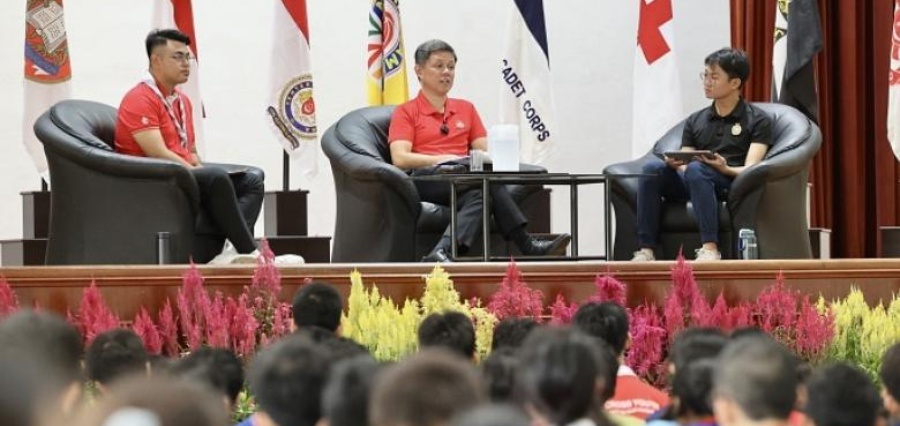Direct School Admission (DSA) must be accessible to a broad range of students, not just those from more affluent families, emphasized Education Minister Chan Chun Sing. When asked if the Ministry of Education (MOE) is considering a review of the DSA scheme, Mr. Chan responded, “The answer must be yes. As Singaporeans, we must always seek to improve our system. No system is perfect.”
Mr. Chan made these remarks during a dialogue session with over 440 youth leaders from uniformed groups in Singapore, at the opening ceremony of the National Camp at Maju Camp on August 22.
“Currently, many students applying for DSA tend to come from more well-resourced families,” Mr. Chan noted. He stressed that schools need to do more to identify and support students with potential who may lack the necessary resources. “This will require us to help our teachers spot talented students in diverse fields, even if they come from less privileged backgrounds.”
These comments follow revelations in July about a basketball coach allegedly accepting money to secure students’ admission into secondary schools. Reports indicated that the coach helped students gain entry to prestigious schools like Anglo-Chinese Junior College and Dunman High School, charging fees of at least $45,000.
Introduced in 2004, DSA allows Primary 6 pupils to secure early admission to secondary schools based on non-academic talents, such as sports and the arts, prior to taking the Primary School Leaving Examination (PSLE). Due to its competitive nature, critics argue that DSA disproportionately benefits children from wealthier households who can afford private coaching and preparatory classes.
As of 2023, according to the MOE, schools offering the Integrated Programme (IP) admit about 30% to 35% of their Secondary 1 intake through DSA, while non-IP schools can admit up to 20%.
Mr. Chan highlighted the importance of aptitude-based assessments like DSA for recognizing students’ strengths and talents, as opposed to standardised tests that focus on general abilities and have limitations. “Standardised tests tend to be uni-dimensional and may not adequately capture the diversity of talents that people possess.”
While non-standardised tests are designed to evaluate various aspects of talent, they can be subjective, Mr. Chan noted, unlike standardised tests that follow a clear, measurable framework. He added that assessing potential, particularly in areas like art, music, leadership, and community service, requires judgment from assessors and is not as straightforward as measuring performance.
Mr. Chan also emphasized that every secondary school admitting students through DSA must contribute to their development, ensuring a smooth transition from primary school. “We don’t want a situation where only the top performers participate in certain co-curricular activities or sports, leaving others discouraged,” he said, adding that DSA must continue to evolve over time.
The event brought together students from over 145 schools, representing leaders from the nine uniformed groups, such as the Boys’ Brigade, Girl Guides, and National Police Cadet Corps (NPCC), as well as the Singapore Youth Flying Club. Also in attendance were 150 volunteers, youth group leaders, and teacher-officers.
Read More: https://theknowledgereview.com/









